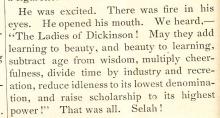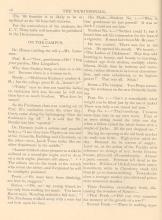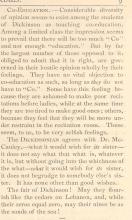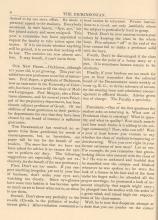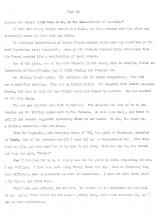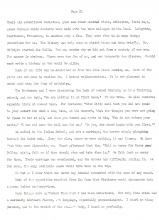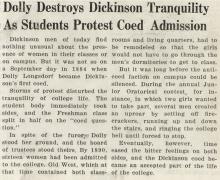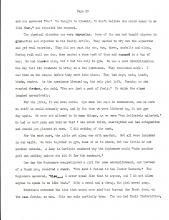Male Students Toast the New Female Students in 1884
In 1884, a toast to the new female students at Dickinson College was published in the Dickinsonian. The toast read, "The Ladies of Dickinson! May they add learning to beauty, and beauty to learning, subtract from the age of wisdom, multiply cheerfulness, divide time by industry and recreation, reduce idleness to its lowest denomination, and raise scholarship to its highest power!"

